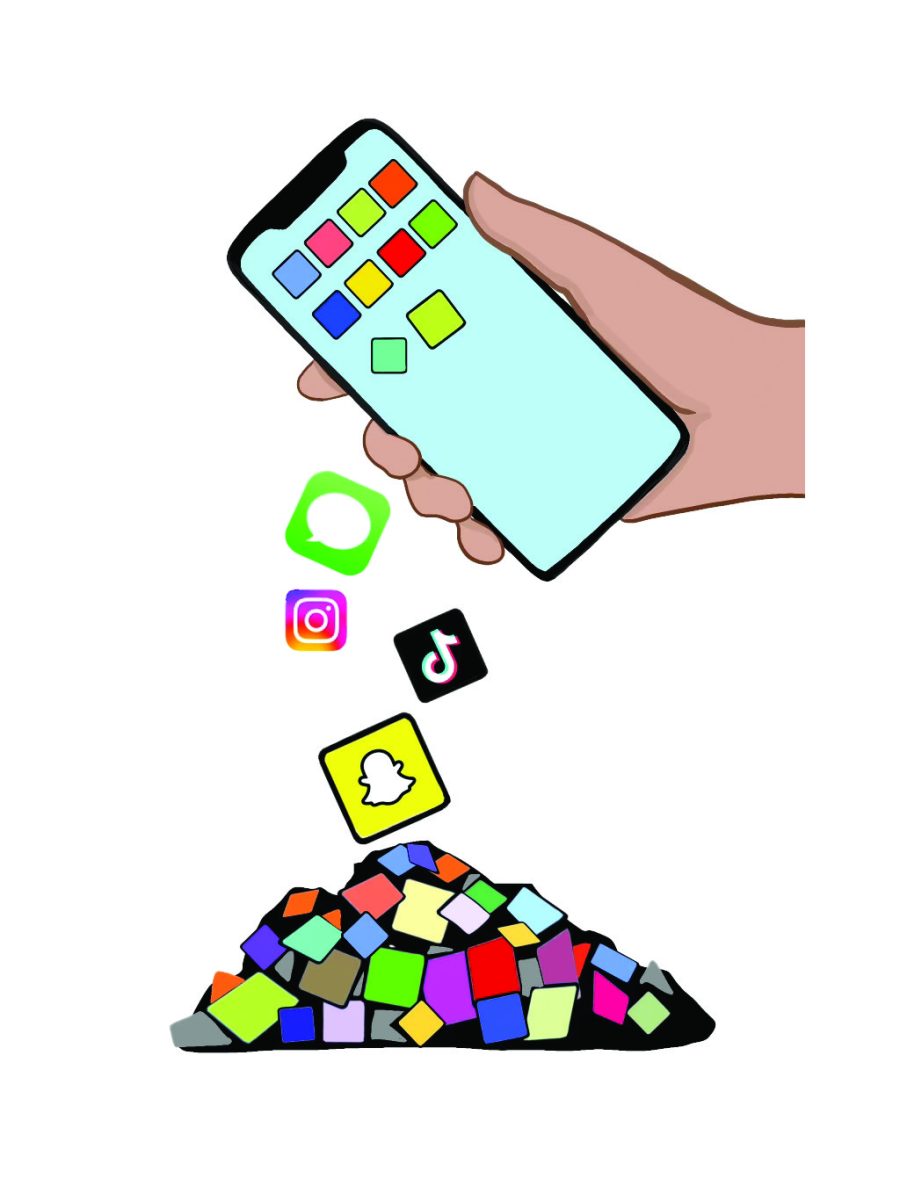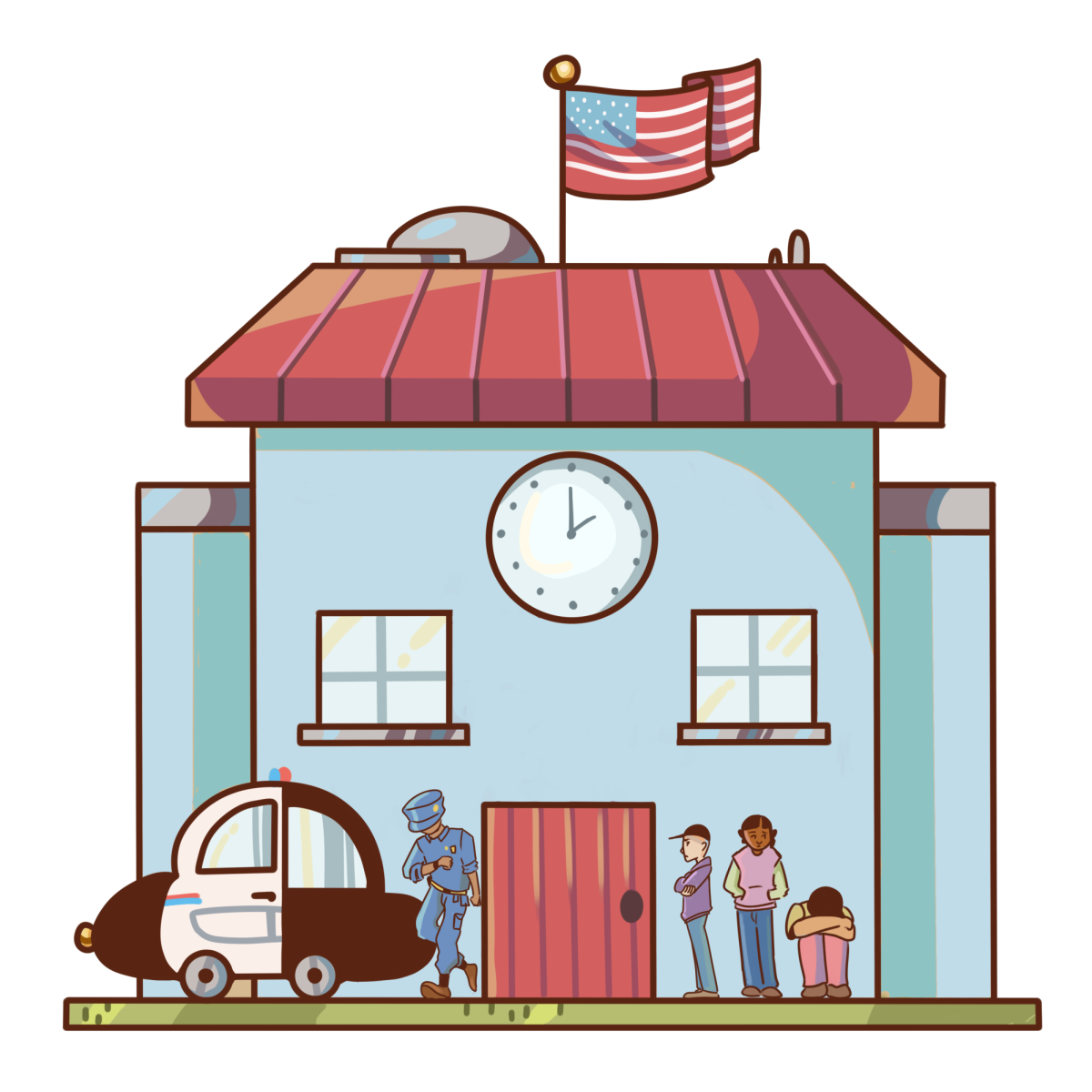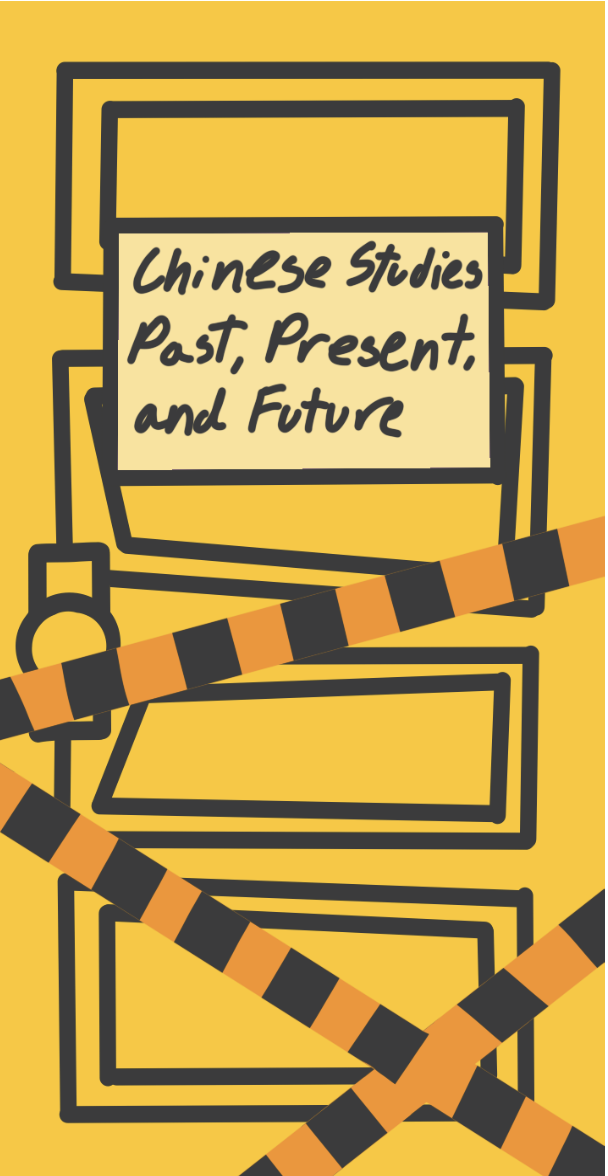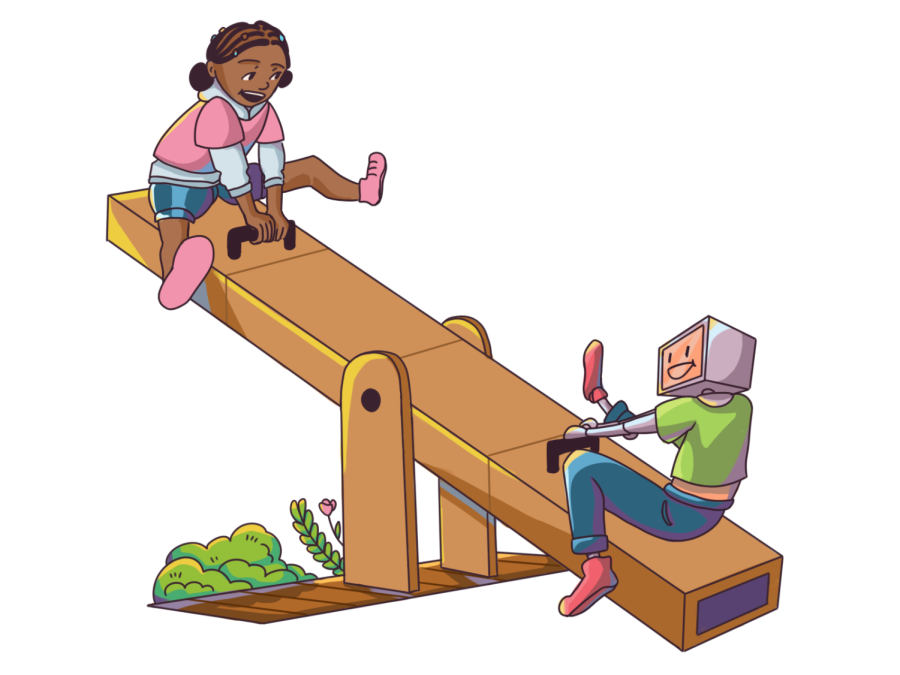As Izzy Llevat ’20 walked to her second period class April 22, she noticed something out of the ordinary: hundreds of water bottles hanging from strings on the ceiling of her science classroom, Munger 105.
“I didn’t expect to look up and see so many crushed water bottles above me,” Llevat said. “It got me really interested.”
After looking more closely at the installation, Llevat discovered that the display was crafted with hundreds of discarded water bottles from around the school and was part of a project the Environmental Club assembled in partnership with Community Council.
“I think the installment really served as inspiration for me and the rest of us to do our part for the Earth,” Llevat said.
In honor of Earth Day, a nationally-recognized holiday, the Environmental Club created the project to draw attention to the excess of plastic used on campus, Environmental Club President Anja Clark ’19 said.
“Earth Day is important to me because, more than any other day of the year, it invites people to reflect on how they can better help their planet,” Founder of Student Climate Emergency Coalition, an environmental activist group, Sonya Ribner ’19 said. “Even though one day does not do justice to the immediate action the crisis demands, the holiday encourages people to consider the current state that the world’s environment is in.”
Now in its 49th year of celebration, the holiday began in 1970 when 20 million Americans engaged in peaceful demonstrations across the country to advocate for increased environmental protection, according to Earth Day Network, the current global coordinator of Earth Day. Together with college students, local grassroots organizations protested oil spills, polluting factories and extinction of wildlife at the time. Within a year, Congress had created the Environmental Protection Agency and passed the Clean Air, Clean Water and Endangered Species Acts as a result of the first Earth Day.
The organization hopes this year’s celebration will inspire further action as well, Earth Day Network Education Coordinator Kira Heeschen said.
“We hope to inspire people of all ages to want to know more and to join the movement for change,” Heeschen said. “People making positive changes for our planet will contribute to our legacy, whether it is a big or small action. We pride ourselves in inspiring and mobilizing people across the world, and believe that our legacy is one that is enhanced by people around the world taking a stand for their environment on Earth Day, and throughout the year.”
In the past few years, the school has worked to create a more environmentally-friendly campus and increase awareness, AP Environmental Science and AP Biology teacher Nadine Eisenkolb said.
“I think that probably 90 percent of our student body wants to do the right thing,” Eisenkolb said. “It’s not like they know they are harming the environment in some ways, it’s not like they know there is a mass extinction occurring and they don’t care. It’s that they don’t know that they engage in simple actions that hurt our planet and they don’t know what other options they have. Hence, if we educate our campus on what they can do, they will make better choices.”
To comply with Earth Day Network’s campaign to reduce single-use plastics, the Environmental Club has replaced both the plastic straws and utensils from the cafeteria with biodegradable alternatives.
“It was just an easy and relatable way to start,” Clark said. “But it obviously isn’t the straws and cutlery that are the entire problem. Essentially the problem is that so much of the disposable items we use don’t get into well managed landfills and end up in the ocean. And a lot of products, as they decompose, release a lot of harmful chemicals.”
In turn, using sustainable alternatives is a simple way to not only reduce individuals’ carbon footprints, but also to protect flora and fauna, Clark said.
“Everything, human or not, that lives on the Earth has a right to live here,” Clark said. “By consuming in such a sort of selfish and inconsiderate way, we’re not really allowing anything else on Earth to have the right of living. So for me, it just seems like a considerate thing to be more careful with what types of synthetics you’re using because it’s really easy to make the change.”
However, students said that the plastic alternatives are inconvenient.
“While great in theory, I really don’t like the sustainable products,” Nathan Lee ’20 said. “The new straws are way too flimsy, which makes it difficult when drinking things like smoothies. The forks also melt in every food that isn’t cold and it can’t be good for us to be eating from something that can’t withstand some heat.”
In addition, the club has worked to eliminate plastic water bottles on campus since the start of this year. To incentivize the student body, the club began its “Donut Forget Your Water Bottle” series in January. These events are held randomly every month, and students who bring reusable bottles are rewarded with free donuts.
“These days are a great idea,” Nina Neumann ’20 said. “Even though it’s easy to figure out when they will be held, it gets people to realize how easy bringing a reusable one is. I use mine every day, even without the incentive of a donut.”
To encourage further sustainability, Environmental Club member George Grube ’20, whose diet is plant-based, added vegan donuts to the event.
“By removing animal products from your lifestyle, you reduce about half of your emissions,” Grube said. “While everyone should be able to make their own personal decisions, this is one of the ways to make a big dent in my personal impact. We have to realize that it can be hard to make drastic life decisions, but I do think it’s worth it to make them if it means saving society and making a wonderful life possible for many more people in the future.”
Students also said they feel that the school’s efforts to create a more sustainable campus have been effective.
“Since I was a sophomore, I feel that the school has definitely made several steps towards sustainability,” Brandon Kao ’19 said. “The changes are minor, but they nevertheless implement changes in our daily lives and do make a difference to the environment. I would definitely like to see even more change on campus after I graduate.”
The Environmental Club has also inspired action in the community. After witnessing the club’s impact on campus, Ribner founded the SCEC this year. The organization brings together local high school students for environmental activism.
“I thought if we had a group of students with a similar desire for immediate climate action, we could not only help educate students across Los Angeles on local environmental issues but bring about meaningful change to confront the climate crisis,” Ribner said. “The rising world temperatures directly impact our generation, so it is left to us to do something about our future.”
With its 50th anniversary approaching next year, Earth Day Network has already started to prepare for the celebration, which is intended to reignite and expand the environmental movement through inspiring advocacy, events and education.
“For Earth Day’s 50th anniversary, I would love to see people around the world come together to demonstrate that environmental protection is a common value we all share and climate action needs to be taken immediately,” Heeschen said. “On this monumental anniversary I hope that people, conservation groups, businesses, governments, teachers, faith group and more join together around the world to learn about the environmental issues that humans have created and work together to address them.”












































